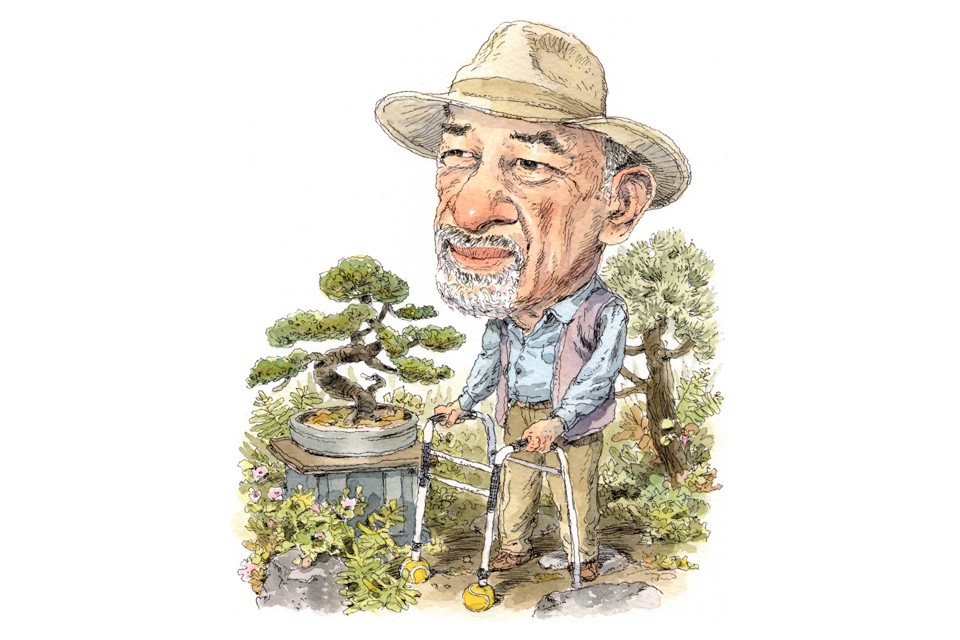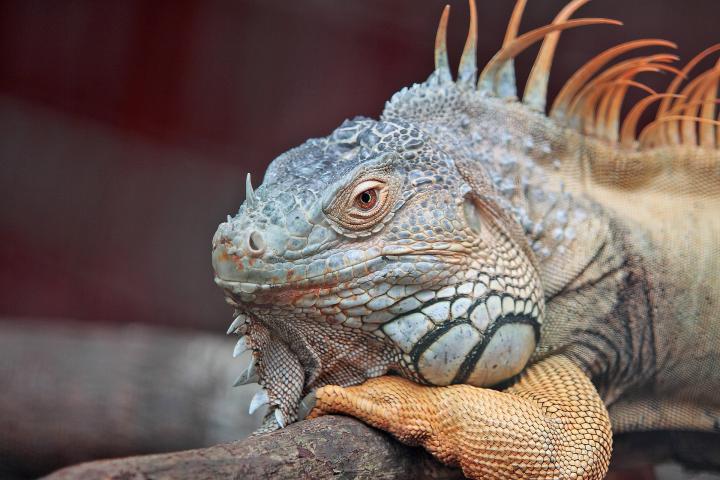
Deathternity talks about all things death related. There are 1 million+ owned graves in cemeteries in America that people will not use. Cemeteries do not buy graves back. I would encourage people to begin thinking about either selling or buying these graves at a deep discount to what your cemetery charges. Or you can donate unused graves for a tax deduction. If I can help you with this please contact me here, email me at deathternity@gmail.com, or call me at 215-341-8745. My fees vary.
Tuesday, September 26, 2017
Friday, September 22, 2017
Thursday, September 21, 2017
How to Die / To Die, Or Not to Die . . .
The Atlantic Magazine, October 2017 :
How to Die
As a psychotherapist, Irvin Yalom has helped others grapple with their mortality. Now he is preparing for his own end.

One morning in May, the
existential psychotherapist Irvin Yalom was recuperating in a sunny
room on the first floor of a Palo Alto convalescent hospital. He was
dressed in white pants and a green sweater, not a hospital gown, and was
quick to point out that he is not normally confined to a medical
facility. “I don’t want [this article] to scare my patients,” he said,
laughing. Until a knee surgery the previous month, he had been seeing
two or three patients a day, some at his office in San Francisco and
others in Palo Alto, where he lives. Following the procedure, however,
he felt dizzy and had difficulty concentrating. “They think it’s a brain
issue, but they don’t know exactly what it is,” he told me in a soft,
gravelly voice. He was nonetheless hopeful that he would soon head home;
he would be turning 86 in June and was looking forward to the release
of his memoir, Becoming Myself, in October.
Issues of The Times Literary Supplement and The New York Times Book Review
sat on the bed, alongside an iPad. Yalom had been spending his stay
watching Woody Allen movies and reading novels by the Canadian writer
Robertson Davies. For someone who helped introduce to American
psychological circles the idea that a person’s conflicts can result from
unresolvable dilemmas of human existence, among them the dread of
dying, he spoke easily about his own mortality.The hope that our existential fears can be diminished inspires people around the world to email Yalom daily. In a Gmail folder labeled “Fans,” he had saved 4,197 messages from admirers in places ranging from Iran to Croatia to South Korea, which he invited me to look at. Some were simply thank-you notes, expressions of gratitude for the insights delivered by his books. In addition to textbooks and other works of nonfiction, he has written several novels and story collections. Some, such as Love’s Executioner & Other Tales of Psychotherapy and When Nietzsche Wept, have been best sellers.
As I scrolled through the emails, Yalom used his cane to tap a button that alerted the nurses’ station. A voice came through the intercom, and he explained that he needed some ice for his knee. It was the third time he’d called; he told me his pain was making it difficult to concentrate on anything else, though he was trying. Throughout his stay, his wife of more than 60 years, Marilyn, had been stopping by regularly to refresh his reading material. The day before, he’d had a visit from Georgia May, the widow of the existential psychotherapist Rollo May, who was a colleague and friend of Yalom’s. When he runs out of other things to do, he plays on his iPad or his computer, using them with the dexterity of someone half his age.
Becoming Myself
is clearly the memoir of a psychiatrist. “I awake from my dream at 3
a.m., weeping into my pillow,” reads the opening line. Yalom’s nightmare
involves a childhood incident in which he insulted a girl. Much of the
book is about the influence that his youth—particularly his relationship
with his mother—has had on his life. He writes, quoting Charles
Dickens, “For, as I draw closer and closer to the end, I travel in the
circle, nearer and nearer to the beginning.”
Yalom first gained fame among psychotherapists for The Theory and Practice of Group Psychotherapy.
The book, published in 1970, argues that the dynamic in group therapy
is a microcosm of everyday life, and that addressing relationships
within a therapy group could have profound therapeutic benefits outside
of it. “I’ll do the sixth revision next year,” he told me, as nurses
came in and out of the room. He was sitting in a chair by the window,
fidgeting. Without his signature panama hat, his sideburns, which skate
away from his ears, looked especially long.Yalom sees each problem encountered in therapy as something of a puzzle, one he and his patient must work together to solve. He described this dynamic in Love’s Executioner, which consists of 10 stories of patients undergoing therapy—true tales from Yalom’s work, with names changed but few other details altered. The stories concentrate not only on Yalom’s suffering patients but also on his own feelings and thoughts as a therapist. “I wanted to rehumanize therapy, to show the therapist as a real person,” he told me.
That might not sound like the stuff of potboilers, but the book, which came out in 1989, was a commercial hit, and continues to sell briskly today. In 2003, the critic Laura Miller credited it with inaugurating a new genre. Love’s Executioner, she wrote in The New York Times, had shown “that the psychological case study could give readers what the short fiction of the time increasingly refused to deliver: the pursuit of secrets, intrigue, big emotions, plot.”
Yalom is candid, both in his memoir and in person, about the difficulties of aging. When two of his close friends died recently, he realized that his cherished memory of their friendship is all that remains. “It dawned on me that that reality doesn’t exist anymore,” he said sadly. “When I die, it will be gone.” The thought of leaving Marilyn behind is agonizing. But he also dreads further physical deterioration. He now uses a walker with tennis balls on the bottoms of the legs, and he has recently lost weight. He coughed frequently during our meeting; when I emailed him a month later, he was feeling better, but said of his health scare, “I consider those few weeks as among the very worst of my life.” He can no longer play tennis or go scuba diving, and he fears he might have to stop bicycling. “Getting old,” he writes in Becoming Myself, “is giving up one damn thing after another.”
Early in Yalom’s existential-psychotherapy practice, he was struck by how much comfort people derived from exploring their existential fears. “Dying,” he wrote in Staring at the Sun, “is lonely, the loneliest event of life.” Yet empathy and connectedness can go a long way toward reducing our anxieties about mortality. When, in the 1970s, Yalom began working with patients diagnosed with untreatable cancer, he found they were sometimes heartened by the idea that, by dying with dignity, they could be an example to others.
Death terror can occur in anyone at any time, and can have life-changing effects, both negative and positive. “Even for those with a deeply ingrained block against openness—those who have always avoided deep friendships—the idea of death may be an awakening experience, catalyzing an enormous shift in their desire for intimacy,” Yalom has written. Those who haven’t yet lived the life they wanted to can still shift their priorities late in life. “The same thing was true with Ebenezer Scrooge,” he told me, as a nurse brought him three pills.
For all the morbidity of existential psychotherapy, it is deeply life-affirming. Change is always possible. Intimacy can be freeing. Existence is precious. “I hate the idea of leaving this world, this wonderful life,” Yalom said, praising a metaphor devised by the scientist Richard Dawkins to illustrate the fleeting nature of existence. Imagine that the present moment is a spotlight moving its way across a ruler that shows the billions of years the universe has been around. Everything to the left of the area lit by the spotlight is over; to the right is the uncertain future. The chances of us being in the spotlight at this particular moment—of being alive—are minuscule. And yet here we are.
Yalom’s apprehension about death is allayed by his sense that he has lived well. “As I look back at my life, I have been an overachiever, and I have few regrets,” he said quietly. Still, he continued, people have “an inbuilt impulse to want to survive, to live.” He paused. “I hate to see life go.”
Wednesday, September 6, 2017
Seinfeld: DEATH is The Last Big Move of Yr Life-Funny
Jerry Seinfeld Stand Up at end of a Seinfeld TV episode in 1992, The Boyfriend (2)
The End
Jerry Stand up
===========
When You're moving your whole world becomes boxes. That's all you think about is
boxes. Boxes, where are there boxes? You just wander down the street going in and out
of stores. Are there boxes here? Have you seen any boxes? I mean it's all you think
about. You can't even talk to people because you can't concentrate. Shut up I'm looking
for boxes. Just after a while you become like really into it you can smell them. You walk
into a store. There's boxes here. Don't tell me you don't have boxes. Dammit, I can
SMELL them. I'm like I'm obsessed. I love the smell of cardboard in the morning. You
could be at a funeral. Everyone's mourning crying around, and your looking at the
casket. That's a nice box Does anyone know where that guy got that box? When he's
done with it do you think I could get that? it's got some nice handles on it. And that's
what death is really. It's the last big move of your life. The hearse is like the van. The
pale bearers are your close friends the only ones you could ask to help you with a big
move like that. and the casket is that great perfect box you've been waiting for your
whole life The only problem is, once you find it you're in it.
Saturday, September 2, 2017
100 Ways To Avoid Dying (Per Folklore!!) - The Old Farmer's Almanac
100 Ways to Avoid Dying (According to Folklore)
Doctors and scientists are always telling us
ways to live longer. Usually they involve a healthier diet or lifestyle:
that is, eating fewer carbs and more vegetables, getting more exercise,
or giving up smoking. Here are 100 ways to avoid dying (according to folklore)!
We wholeheartedly endorse the rigorous and
unpleasant methods of extending life suggested by doctors, but our
research into centuries of American folk wisdom has turned up 100 EASY
ways of avoiding death by observing a few simple rules in everyday
situations. These beliefs come from all over this country and were
actually collected by students of folklore and anthropology.
None of them were made up. Just remember: if you fail to observe these rules, we won’t be responsible for the consequences!
Housekeeping Hints
1. Don’t take ashes out of the fireplace or wood stove between Christmas and New Year’s Day.
2. Never place a broom on a bed.
3. Close umbrellas before bringing them into a house.
4. Avoid sweeping after sundown.
5. You mustn’t wash clothes on New Year Day.
6. Don’t shake out a tablecloth after dark.
7. Never wash a flag.
8. Don’t turn a chair on one leg.
9. Keep cats off piano keys.
10. Don’t hang a dishcloth on a doorknob.
11. Sweeping under a sick person’s bed will kill him or her.
12. Don’t ever, ever rock an empty rocking chair.
2. Never place a broom on a bed.
3. Close umbrellas before bringing them into a house.
4. Avoid sweeping after sundown.
5. You mustn’t wash clothes on New Year Day.
6. Don’t shake out a tablecloth after dark.
7. Never wash a flag.
8. Don’t turn a chair on one leg.
9. Keep cats off piano keys.
10. Don’t hang a dishcloth on a doorknob.
11. Sweeping under a sick person’s bed will kill him or her.
12. Don’t ever, ever rock an empty rocking chair.

Credit: Carolyn Dougherty
Renovation and Decorating
13. Never add-on to the back of your house.
14. You mustn’t cut a new window in an old house; the only way to avoid fatal consequences is to toss your apron through the new window, and then jump through it yourself.
15. Never drive a nail after sunset.
16. Don’t move into an unfinished house.
17. Avoid carrying axes, shovels, and other sharp-edged tools through a house; if you must take one inside, always take it out by the same door.
18. If you move out of a house, don’t move back into it for a year.
19. Don’t hang your sweetheart’s picture upside-down.
20. If a picture falls from the wall, don’t pick it up.
21. Never carry a peacock’s feather into a house.
22. Keep cut flowers out of bedrooms overnight.
23. Don’t ever carry a bouquet of wildflowers indoors before May 1.
14. You mustn’t cut a new window in an old house; the only way to avoid fatal consequences is to toss your apron through the new window, and then jump through it yourself.
15. Never drive a nail after sunset.
16. Don’t move into an unfinished house.
17. Avoid carrying axes, shovels, and other sharp-edged tools through a house; if you must take one inside, always take it out by the same door.
18. If you move out of a house, don’t move back into it for a year.
19. Don’t hang your sweetheart’s picture upside-down.
20. If a picture falls from the wall, don’t pick it up.
21. Never carry a peacock’s feather into a house.
22. Keep cut flowers out of bedrooms overnight.
23. Don’t ever carry a bouquet of wildflowers indoors before May 1.
Sewing and Fashion
24. If you cut out a new dress on Friday, you must finish it that same day.
25. Don’t make new clothes between Christmas and New Year’s Day.
26. Never hold a stick in your mouth while sewing.
27. Always sew cross-stitching on your underwear.
28. Don’t walk around in one shoe.
29. If you see a will-o’-wisp while out walking at night, turn your coat inside-out.
30. Never wear another’s new clothes before they have worn them.
31. A woman who makes her own wedding dress will not live to wear it.
25. Don’t make new clothes between Christmas and New Year’s Day.
26. Never hold a stick in your mouth while sewing.
27. Always sew cross-stitching on your underwear.
28. Don’t walk around in one shoe.
29. If you see a will-o’-wisp while out walking at night, turn your coat inside-out.
30. Never wear another’s new clothes before they have worn them.
31. A woman who makes her own wedding dress will not live to wear it.
Cooking and Table Manners
32. Never set three lamps on a table at the same time.
33. Don’t set the table backwards.
34. Never serve 13 at a table.
35. Avoid drinking coffee at 5 o’clock.
36. You mustn’t write on the back of a dish.
37. Never return borrowed salt.
38. Don’t ever cross knives while setting the table.
39. Be sure that someone else cooks your birthday dinner.
40. Don’t put two forks at one place setting.
41. Never, never turn a loaf of bread upside down.
33. Don’t set the table backwards.
34. Never serve 13 at a table.
35. Avoid drinking coffee at 5 o’clock.
36. You mustn’t write on the back of a dish.
37. Never return borrowed salt.
38. Don’t ever cross knives while setting the table.
39. Be sure that someone else cooks your birthday dinner.
40. Don’t put two forks at one place setting.
41. Never, never turn a loaf of bread upside down.

Sleeping
42. Sleeping with your head at the foot of the bed is surely fatal.
43. Don’t sing in bed.
44. If you hear a dog howl at night, reach under the bed and turn over a shoe.
45. Don’t count stars.
46. A man should never dream of a naked woman; a woman should never dream of a naked man. (You know who you are…)
43. Don’t sing in bed.
44. If you hear a dog howl at night, reach under the bed and turn over a shoe.
45. Don’t count stars.
46. A man should never dream of a naked woman; a woman should never dream of a naked man. (You know who you are…)
Personal Hygiene
47. Never rub soap on your skin on a Friday.
48. Don’t look into a mirror over another’s shoulder.
49. Avoid combing your hair after dark.
50. Absolutely no haircuts in March.
51. Let a baby’s hair and fingernails grow until their 1st birthday.
52. Don’t let two people comb your hair at once.
53. Never shave at night.
54. NEVER, EVER share a razor used by a dead man.
48. Don’t look into a mirror over another’s shoulder.
49. Avoid combing your hair after dark.
50. Absolutely no haircuts in March.
51. Let a baby’s hair and fingernails grow until their 1st birthday.
52. Don’t let two people comb your hair at once.
53. Never shave at night.
54. NEVER, EVER share a razor used by a dead man.
Funeral Etiquette
55. Never hold a funeral on a Friday.
56. When a person dies in a house, you must immediately cover all mirrors and stop all clocks.
57. Children should not pretend to have funerals.
58. Don’t ever try on a mourning veil.
59. Always remove a dead body from a house feet first.
60. Never ride in a hearse, unless you are the driver.
61. Don’t count the cars in a funeral motorcade.
62. Avoid wearing new clothes to a funeral, especially new shoes.
63. Pull the shades in a room where a funeral service is taking place; if the sun hits a mourner’s face, he is the next to die.
64. When walking in a funeral procession, don’t look backwards.
65. Never point at a grave.
66. Try not to step across a grave.
67. Never leave a grave open overnight.
68. Don’t ever be the first to leave the graveyard after a funeral. (And hope that not everyone else follows this rule, too…)
69. If a corpse lies unburied on Sunday, another in town will surely die soon.
70. Wait a year before putting up a tombstone for a family member; if you don’t, another family member will go before the year has ended.
56. When a person dies in a house, you must immediately cover all mirrors and stop all clocks.
57. Children should not pretend to have funerals.
58. Don’t ever try on a mourning veil.
59. Always remove a dead body from a house feet first.
60. Never ride in a hearse, unless you are the driver.
61. Don’t count the cars in a funeral motorcade.
62. Avoid wearing new clothes to a funeral, especially new shoes.
63. Pull the shades in a room where a funeral service is taking place; if the sun hits a mourner’s face, he is the next to die.
64. When walking in a funeral procession, don’t look backwards.
65. Never point at a grave.
66. Try not to step across a grave.
67. Never leave a grave open overnight.
68. Don’t ever be the first to leave the graveyard after a funeral. (And hope that not everyone else follows this rule, too…)
69. If a corpse lies unburied on Sunday, another in town will surely die soon.
70. Wait a year before putting up a tombstone for a family member; if you don’t, another family member will go before the year has ended.

General and Miscellaneous
71. Drink May rainwater.
72. When sick, don’t look in mirrors.
73. Don’t give a person a peony.
74. Never measure your own height.
75. Try not to imagine it’s Saturday when it’s not.
76. Don’t count cars on a passenger train.
77. Never whistle in a coal mine.
78. Avoid measuring a person who is lying down.
79. Don’t walk backwards.
80. You mustn’t allow a candle to burn itself out.
81. Never sell a dog.
82. Try not to kill a crow; but if you do, be sure to bury it while wearing black.
83. If you transplant a cedar tree, you will die by the time it is big enough to shade a grave.
84. The same is true of a willow tree (as in 83)
85. Don’t ever hang your hoe on a tree branch.
86. Don’t skip a row when planting corn or beans.
87. If you watch a person out of sight, you’ll never see them again.
88. Avoid stepping over a person who is lying down.
89. When your name is called, don’t answer the first time—it may be the Devil calling you.
90. Never shake hands through a window or over a fence.
91. Try not to sit with your back to the fire.
92. Don’t burn sassafras wood.
93. If you walk with your hands locked behind your head, it will kill your mother.
94. Don’t even THINK of mocking an owl. (Who?)
95. Don’t store your shoes above your head.
96. Never kill a locust.
97. Never kill a lizard.
98. If you hear a hen crow, you must kill the hen.
99. If you are on a train when a woman boards, dressed in black, get off.
100. Whatever you do, don’t let a lizard count your teeth. (Seriously, just DON’T.)
72. When sick, don’t look in mirrors.
73. Don’t give a person a peony.
74. Never measure your own height.
75. Try not to imagine it’s Saturday when it’s not.
76. Don’t count cars on a passenger train.
77. Never whistle in a coal mine.
78. Avoid measuring a person who is lying down.
79. Don’t walk backwards.
80. You mustn’t allow a candle to burn itself out.
81. Never sell a dog.
82. Try not to kill a crow; but if you do, be sure to bury it while wearing black.
83. If you transplant a cedar tree, you will die by the time it is big enough to shade a grave.
84. The same is true of a willow tree (as in 83)
85. Don’t ever hang your hoe on a tree branch.
86. Don’t skip a row when planting corn or beans.
87. If you watch a person out of sight, you’ll never see them again.
88. Avoid stepping over a person who is lying down.
89. When your name is called, don’t answer the first time—it may be the Devil calling you.
90. Never shake hands through a window or over a fence.
91. Try not to sit with your back to the fire.
92. Don’t burn sassafras wood.
93. If you walk with your hands locked behind your head, it will kill your mother.
94. Don’t even THINK of mocking an owl. (Who?)
95. Don’t store your shoes above your head.
96. Never kill a locust.
97. Never kill a lizard.
98. If you hear a hen crow, you must kill the hen.
99. If you are on a train when a woman boards, dressed in black, get off.
100. Whatever you do, don’t let a lizard count your teeth. (Seriously, just DON’T.)
Subscribe to:
Comments (Atom)

